Laetare – Sunday 10 March A✠D 2024
✠ Psalmody: Isaiah 66:10a, 11a;Psalm 122:1-2, 6, 8;122:1, 7;125:1-2
✠ Lection: Exodus 16:2-21;Galatians 4:22—5:1a;St. John 6:1-15
In the Name of the Father and of the ✠ Son and of the Holy Spirit. Amen.
Rejoice and be glad in Jesus, priceless treasure, fount of purest pleasure, for He pours down enduring abundance from heaven for you in His good gifts of Word and Sacrament. In a world where you need more than bread alone, He feeds you with every word that proceeds out of His mouth. He feeds you with what you need to endure, to thrive, to build one another up, to leave behind a godly legacy, for that is what He has done in this feeding miracle. As we are indeed visually at a turning point in Lent, in the journey with our Lord up to Jerusalem, our eyes drawn up to the cross intensify in focus, which in turn reminds and reassures the Christian heart of its Reason to rejoice. In St. John’s account of the feeding of the 5,000, we are indirectly led to the cross of Christ through the beautiful connections that are made back and forth across the unity of the Holy Scriptures.
We confess with those fed by Christ that day that This is truly the Prophet who is to come into the world. That Prophet is Christ, glorified in our Christmas Gospel about Him that proclaims that He was the true Light, which coming into the world, gives light to every man. He is that Prophet, promised in the words spoken through Moses in Deuteronomy 18: The LORD your God will raise up for you a Prophet like me from your midst, from your brethren. As a type of Christ, as a foreshadowing of the Promised Prophet to come into the world as the true Light, it is Moses who leads our way of understanding through the miraculous feeding to the feet of the cross.
The great prophet of old leading the Exodus of the people Israel out of Egypt is a picture of Jesus leading His people out of our bondage to sin, death, and the devil. Moses crossed the Red Sea in Exodus 14 and 15. The people followed him three days into the wilderness. They saw the signs that he did when he cast a tree into the bitter waters to make them sweet. Then, in Exodus 19, Moses goes up on the mountain, painting glorious prophetic strokes which are fulfilled in the fullness of time when Christ comes to do similarly, but as God Himself, and with measures and treasures that neither moth nor rust can destroy.
With Moses, the preceding type, in mind, hear again the beginning of our Gospel for this Sunday of rejoicing and the antitype in which his picture is fulfilled: Jesus went over the Sea of Galilee, which is the Sea of Tiberias. Then a great multitude followed Him, because they saw His signs which He performed on those who were diseased. And Jesus went up on the mountain, and there He sat with His disciples. Indeed, here is the fulfillment in Christ of what was portrayed in Moses. Indeed, here also the stage is set for your eternal Exodus in the Prophet Who is to come, delivering you out of the clutches of the devil, the world, and your sinful nature. How you are to know that it is for you is by what takes place in the midst of all those things from Exodus 14, 15, and 19. In your hearing this morning was Exodus 16 in which Moses recounts God feeding the children of Israel with bread from heaven, and here in John 6 is that very same LORD again feeding a great multitude miraculously, with bread, in the wilderness, drawing their eyes and yours to Him as He so graciously lifts up His eyes, His countenance, upon you.
By the testimony of Exodus and John, you can look to Christ with confidence and trust that He will provide for you in body and soul even when the math doesn’t add up as to how He’ll do it. God is not confined by mathematics or accounting. He fulfills your needs in the body so that you recognize that it is He Who gives you your daily bread and so that you receive it with thanksgiving. He is the Lord Who provides not only abundantly, but perpetually. He gives to you now so that you have what you need and so that you can prepare for those who come after you for them to have what they need, too. This includes all that has to do with the support and needs of the body, but Christ intends to give you abundant amounts of Himself most of all, so that you are filled with Him now and so that the legacy that remains after your death is one that is not all about you or your things, but about Him. In Him alone are all gathered yonder. He gives and what He gives endures, so if your hope is to possess now, in these gray and latter days, what is lasting, and to have fragments that remain for others, then hear, proclaim, and see that it can only be Jesus.
With a little bread and a few fish before Him, Jesus said, “Make the people sit down.” Now there was much grass in the place. What He literally said was “Make the people lie down; make them recline” as in recline at table, at a table prepared, at a table made ready for a well-prepared meal. The Lord Jesus is their Shepherd; they shall not want. He maketh them to lie down in green pastures. They want not, for they ate as much as they wanted and were filled when they lay down as the Lord bade them to do, to eat of Him. He provided temporally that day by a miracle, a sign, but remember that all of the signs are meant not to point to the sign, but to the Savior. His sheep want not, because they have Him feeding them.
Our Savior sets the captives free from the bondage of sin through forgiveness found only in His shed blood, and He is the only One to keep you in that freedom of His pasture. The people of Israel would have not only the grumbling desire, but also no choice but to return to the pots of meat of slavery and to eat the bread of bondage to the full had the LORD not provided food in the wilderness of the Exodus. Do you see? The only way that they could be freed and remain free was for the LORD to provide food for them ongoingly in the wilderness. How foolish it would have been not to regularly eat the Lord’s Meal. The only way that you can be and remain free from the prowling lion that seeks to devour you; the only way that you can be and remain free from the shackles of the guilt and shame of your sin is to regularly eat what the Lord provides freely from heaven in this wilderness just as the prophet Isaiah says, Ho! Everyone who thirsts, Come to the waters; And you who have no money, Come, buy and eat. Yes, come, buy wine and milk Without money and without price. Why do you spend money for what is not bread, And your wages for what does not satisfy? Listen carefully to Me, and eat what is good, And let your soul delight itself in abundance. You are sustained, yea, even satisfied and filled, in this wilderness only by the Bread of Life Himself as He provides to you His Flesh to eat and His Blood to drink without money and without price, for the price was placed upon Him. Nothing else satisfies like Him. Nothing else keeps you free like Him.
We see that all of this is about Jesus, but how is it more emphatically about the cross of Jesus? To make to jump from this mountain to the one upon which the King of Glory died on the cross begins in the phrase that is seemingly just thrown into this miracle story: Now the Passover, a feast of the Jews, was near. No mere sidenote, it leads us to remember the very first Passover that took place in Egypt right before the Exodus when a paschal lamb was slaughtered so that its blood protected all the first born from the destroyer. There is also a connection to the children, to the twelve tribes of Israel, not only by the passing mention of the Passover feast, but also in the twelve baskets used to gather the fragments that remain, so that nothing is lost. Another way to say that is …so that nothing perishes, because it’s the exact same word found in the well-known verse from John 3: For God so loved the world, that he gave his only begotten Son, that whosoever believeth in him should not perish, but have everlasting life. And what is this way in which God loved the world? In the two verses right before that, Jesus was saying, as Moses lifted up the serpent in the wilderness, even so must the Son of man be lifted up: That whosoever believeth in him should not perish, but have eternal life. Corresponding to this, He later says in John 12, And I, when I am lifted up from the earth, will draw all people to myself. So, in being lifted up on the cross, Jesus draws all people to Himself, so that nothing perishes. He frees. He saves. He sustains. He endures, thus those who feed on Him shall do the same and not perish, for His word endures forever. The feeding of the 5,000 leads you to Jesus’ eternal provision for you on the cross, the Tree of Life from which you eat the fruit of His sacrifice for the forgiveness of sins, life, and salvation sustaining you in your freedom from the bonds of sin and building up in you a legacy of Christ to be poured out on those who follow.
When your life is built upon, sustained, and fed by the Bread of Life, Jesus Christ your Lord, in the pasture of His Church in which you come to recline at His Table, then that life by nature establishes a godly legacy by which others will benefit from what, from Whom, endures in yours. The twelve apostles gathered up what Jesus said, and filled twelve baskets with the fragments of the five barley loaves which were left over by those who had eaten. What happened to those baskets full of food that Jesus provided? In the story, they are left unaccounted for, showing that what is gathered of Christ by His holy Church is for those in it and for those yet to come to be in it. The abundance of Christ is for you now and for those to come after you in the Holy Christian Church, the new, true, eternal Israel. The legacy of Jesus is found only where He is found; only where He provides Himself as heavenly food to strengthen and preserve you in body and soul in the one true faith unto life everlasting. The Christian departs in peace in the confidence that leaving behind the abundance of Christ that sustained them will also satisfy the hungry souls that follow, for to eat of the Fruit of this Tree (the cross) is to live, indeed, is to be free, indeed, is to rejoice, indeed.
In ✠ Jesus’ Name. Amen.



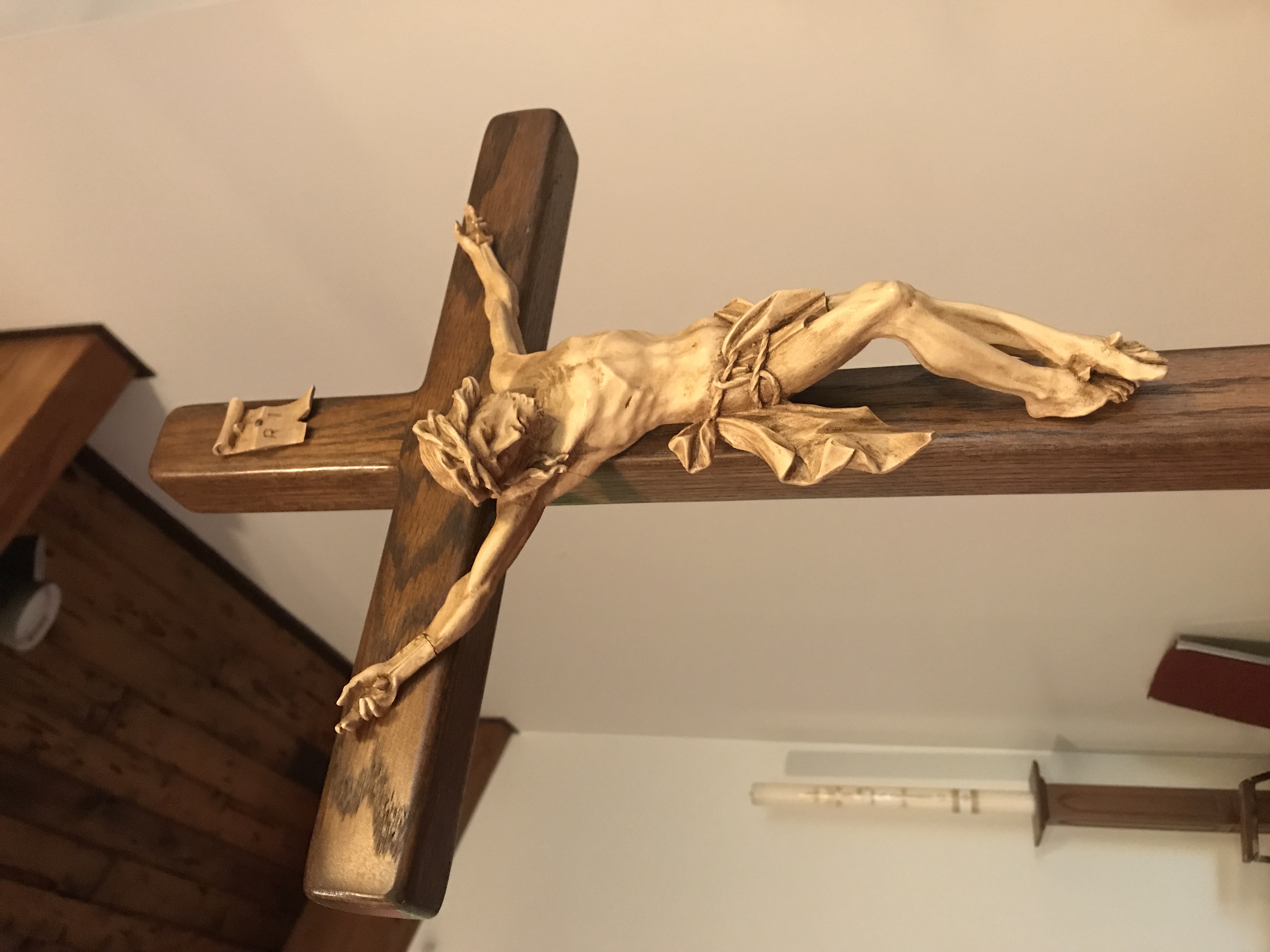
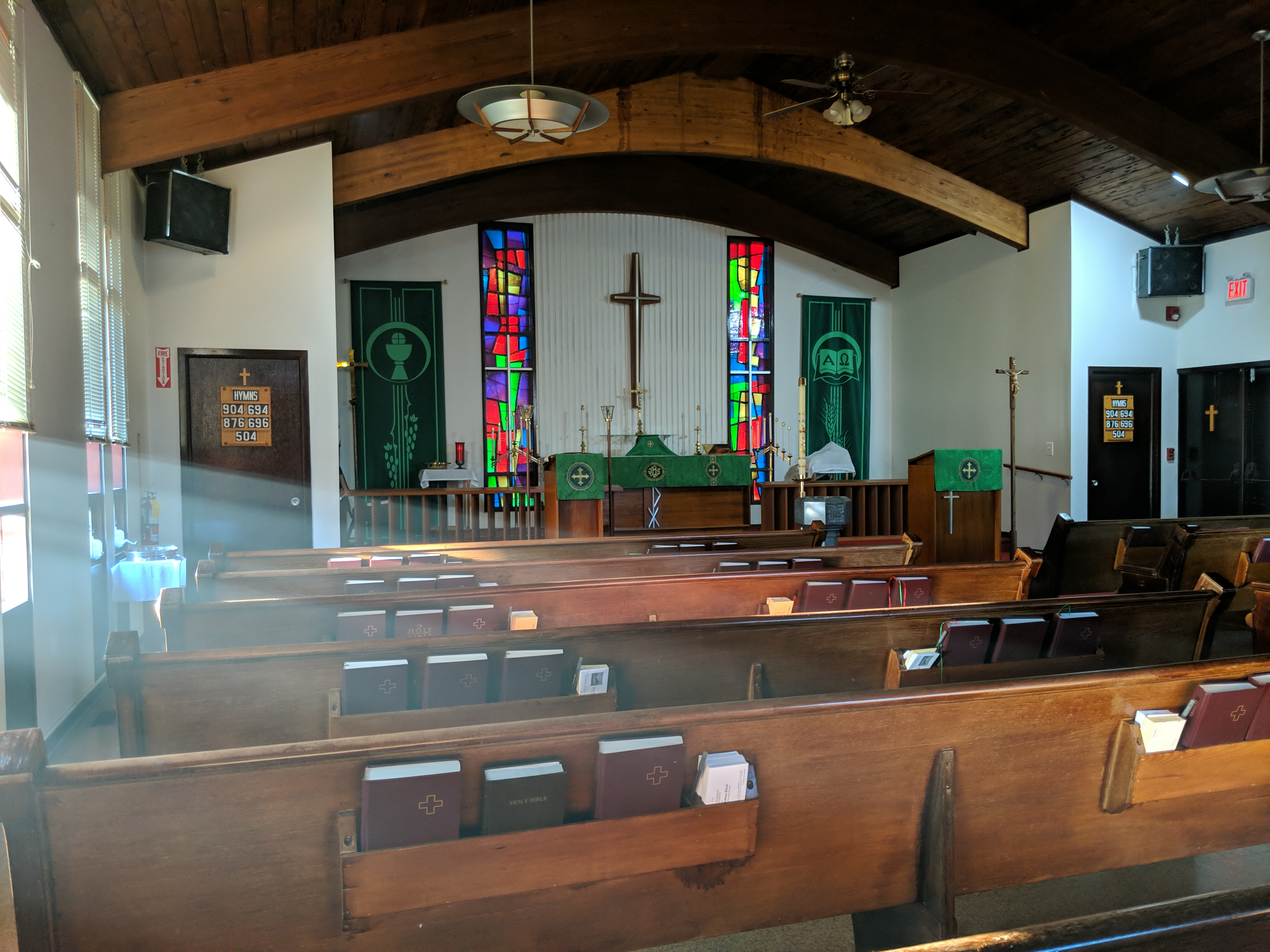
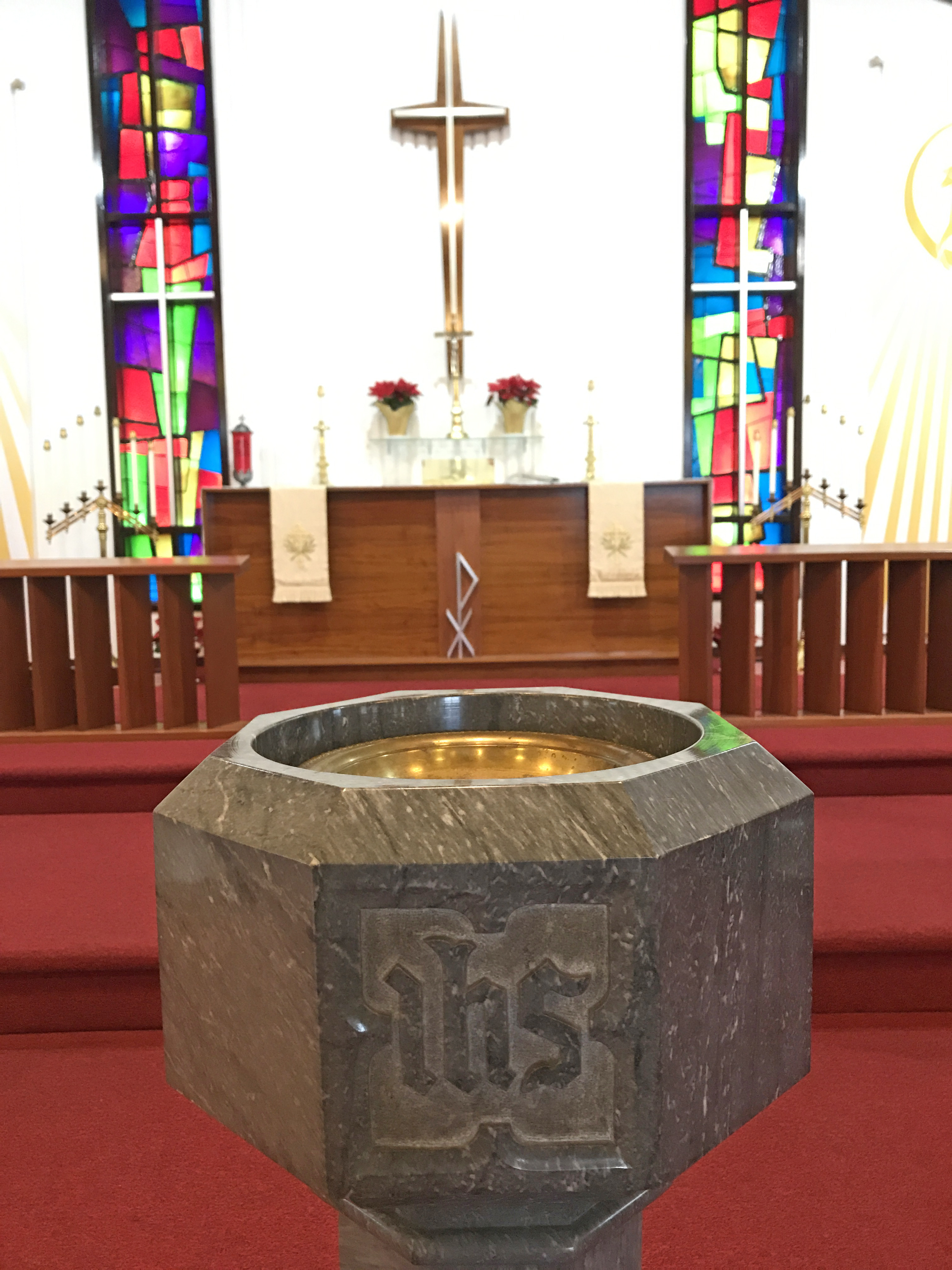

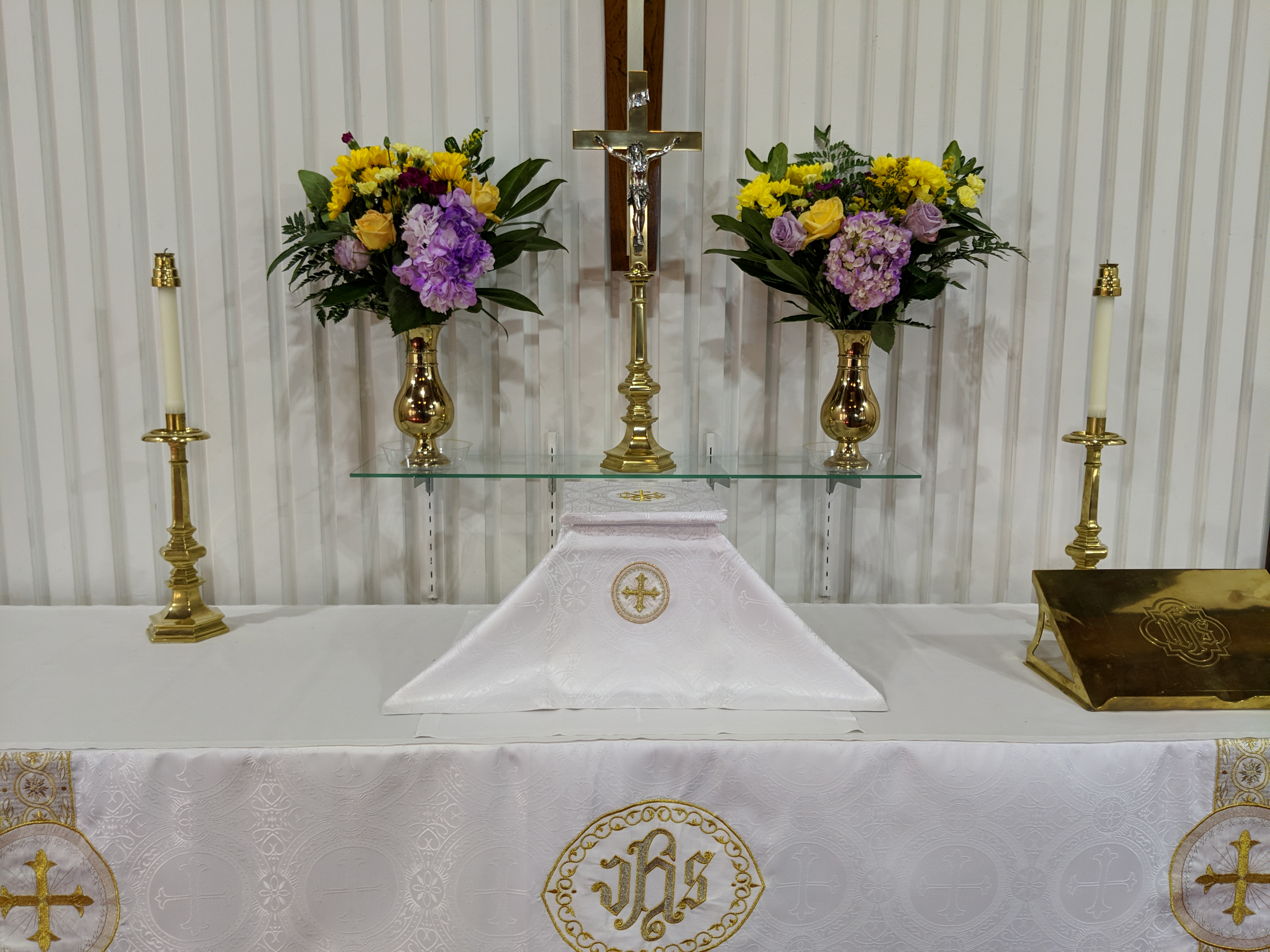




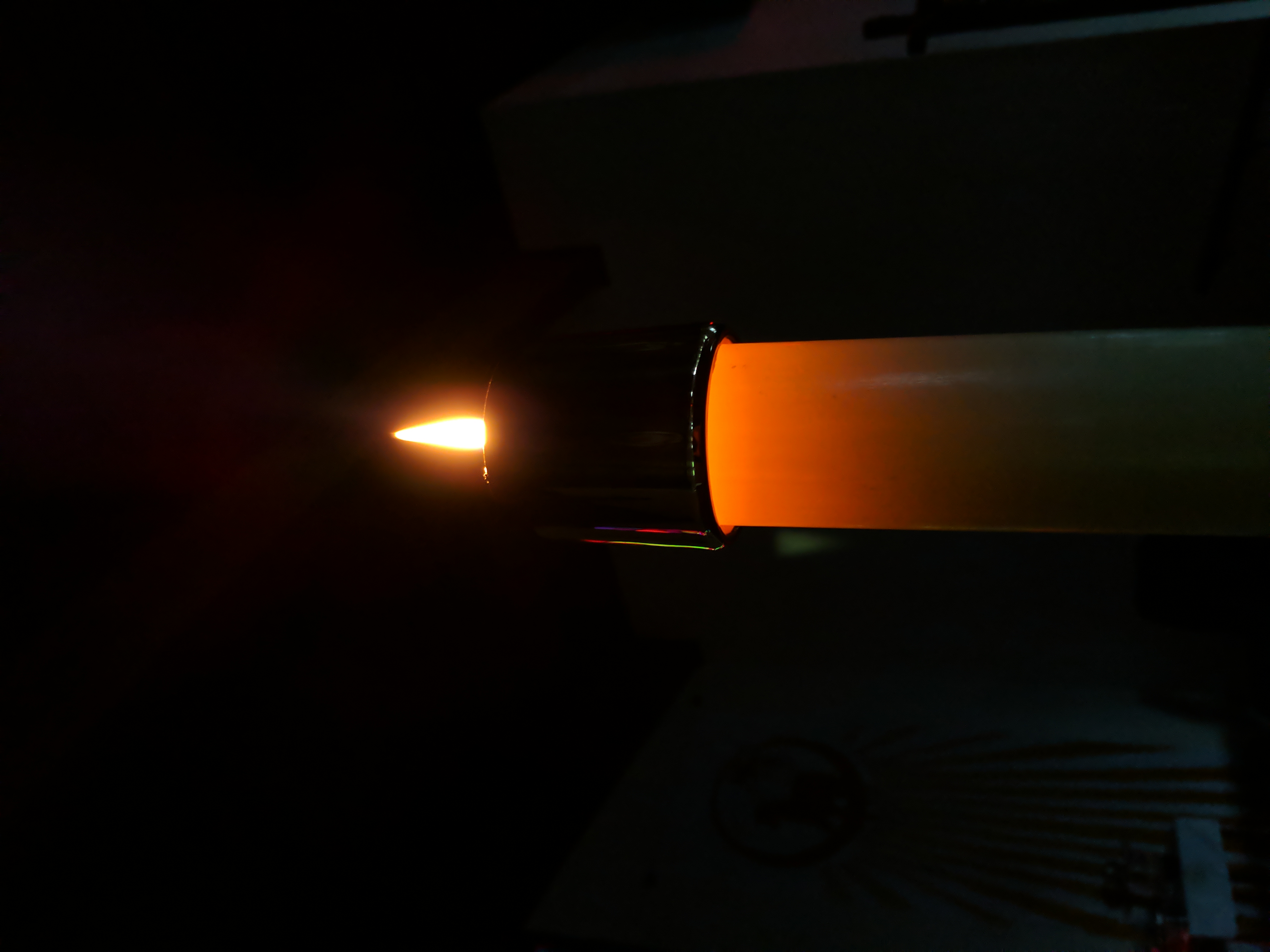


Comments are closed, but trackbacks and pingbacks are open.